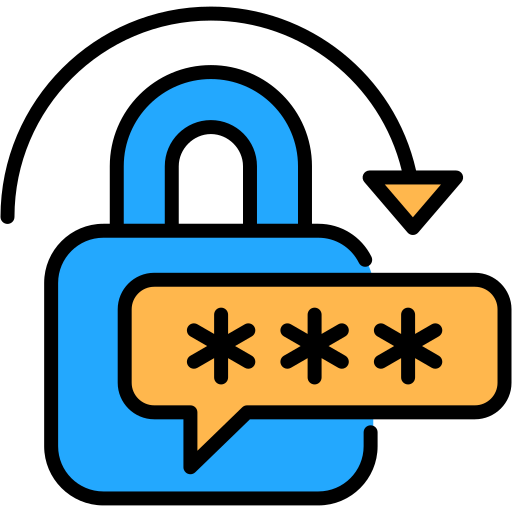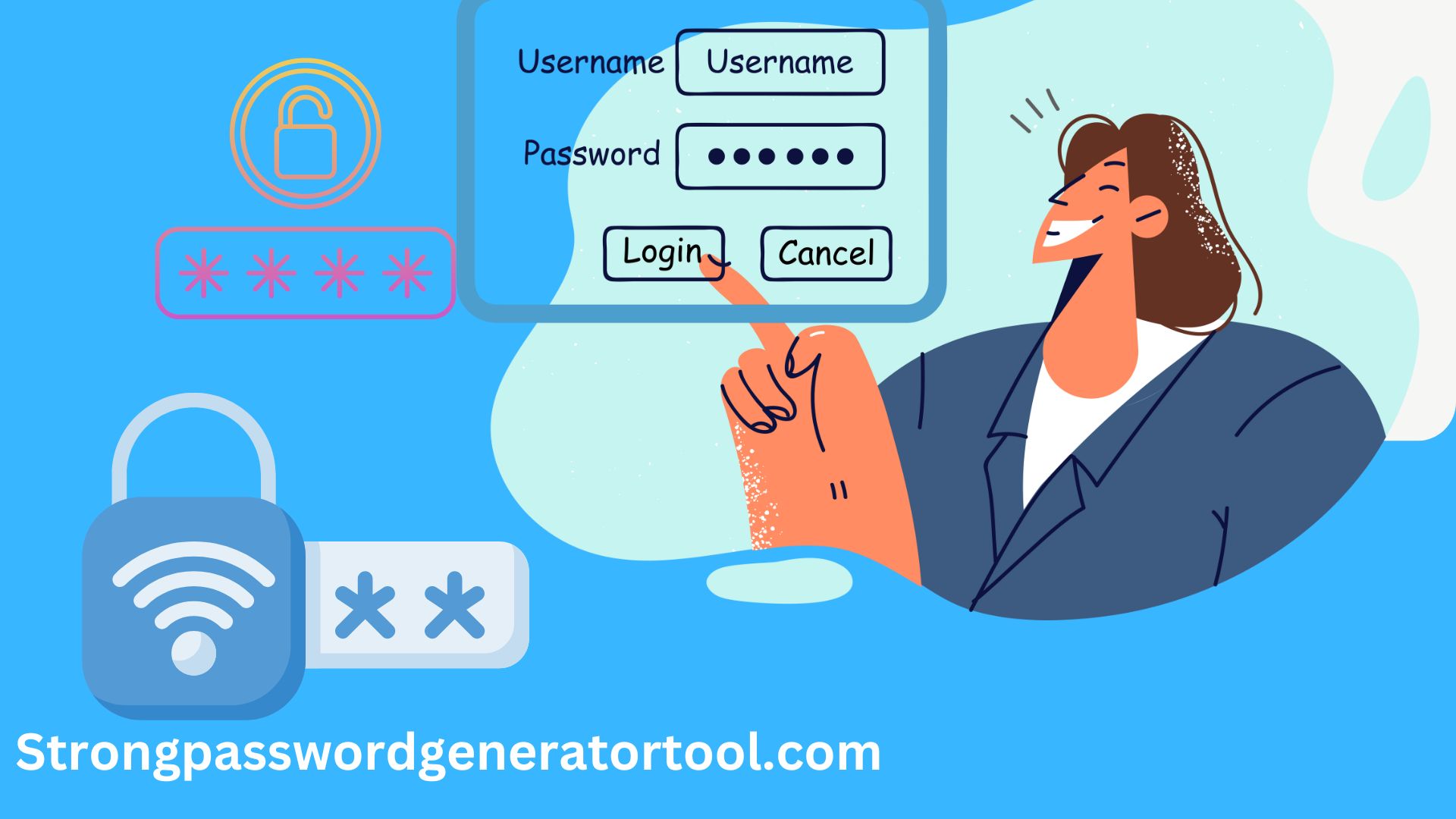Table of Contents
ToggleWhat is L2TP?
L2TP stands for Layer 2 Tunneling Protocol. It’s a type of VPN (Virtual Private Network) technology used to create secure connections over the internet. Imagine it as a secure tunnel that safely transports your data between two points. This protocol doesn’t encrypt data on its own but instead works in conjunction with other protocols like IPsec (Internet Protocol Security) to provide encryption and authentication.== >> Check out the complete book about Layer 2 Tunneling Protocol here < =

How L2TP Works
L2TP operates by creating a tunnel between your device and the internet, allowing for a private and secure connection. Here’s a simplified breakdown:
- Initiation: When you connect to an L2TP VPN, your device establishes a connection with the L2TP server.
- Tunneling: Your data packets are encapsulated inside L2TP packets. These L2TP packets are then sent through the internet.
- Decapsulation: The L2TP server receives the packets, removes the L2TP encapsulation, and forwards the original data to the destination.
This process ensures that your data travels securely, as it’s protected from eavesdropping during its journey across the internet.== >> Check out the complete book about Layer 2 Tunneling Protocol here < =
L2TP and Password Security
While L2TP itself doesn’t encrypt data, it is often used alongside IPsec, which handles encryption. Here’s why that’s important:
- Enhanced Security: When combined with IPsec, L2TP provides a robust layer of security by encrypting your data and ensuring that it can’t be easily intercepted or read by unauthorized parties.
- Authentication: L2TP can help ensure that only authorized users can access the VPN, which adds another layer of protection to your passwords and other sensitive information.
- Data Integrity: By securing the communication channel, L2TP helps maintain the integrity of the data being transmitted, ensuring that passwords and other confidential information remain intact.== >> Check out the complete book about Layer 2 Tunneling Protocol here < =
Why Use L2TP for Password Security?
Using L2TP as part of your VPN setup can be beneficial for password security due to several reasons:
- Secure Access: It provides a secure method to access network resources, reducing the risk of unauthorized access.
- Privacy Protection: By encrypting your data, L2TP helps protect your login credentials and other sensitive information from potential hackers.
- Compatibility: L2TP is supported by most modern VPN services and can be used across various devices and platforms, making it a versatile choice for enhancing security.== >> Check out the complete book about Layer 2 Tunneling Protocol here < =
Practical Tips for Using L2TP
- Combine with IPsec: Always use L2TP in conjunction with IPsec to ensure that your data is encrypted and secure.
- Choose a Reliable VPN Provider: Ensure that your VPN provider uses L2TP/IPsec for encryption to get the most out of this protocol.
- Update Regularly: Keep your VPN software up to date to ensure you have the latest security patches and improvements.== >> Check out the complete book about Layer 2 Tunneling Protocol here < =
Real-World Examples of L2TP in Action
To better grasp how L2TP plays a role in securing your passwords and overall data, let’s explore a few practical examples where L2TP shines:
1. Remote Work
Imagine you’re working from home and need to access sensitive company files. Using a VPN with L2TP/IPsec ensures that your connection to the company’s network is secure. Here’s how it works:
- Connection: You connect to your company’s VPN using L2TP.
- Security: The L2TP protocol establishes a tunnel, while IPsec encrypts your data.
- Access: You can access internal company resources as if you were physically present in the office, all while your passwords and data are shielded from potential cyber threats.
By using L2TP/IPsec, the company ensures that remote employees can work safely without compromising sensitive information.== >> Check out the complete book about Layer 2 Tunneling Protocol here < =
2. Public Wi-Fi Protection
When you’re on public Wi-Fi like at a coffee shop or airport using L2TP/IPsec can help protect your data:
- Connection: You log into a public Wi-Fi network and initiate a VPN connection using L2TP.
- Encryption: The L2TP/IPsec tunnel encrypts your data, safeguarding it from hackers who might be lurking on the same network.
- Security: Any passwords or personal information you send or receive are encrypted and secure, even though you’re on a potentially unsafe network.
This layer of security ensures that even if someone tries to intercept your data, all they’ll find are encrypted packets that are useless without the proper decryption keys.== >> Check out the complete book about Layer 2 Tunneling Protocol here < =
3. Bypassing Geo-Restrictions
If you’re traveling abroad and want to access content or services that are only available in your home country, L2TP can help:
- Connection: You connect to a VPN using L2TP from a foreign location.
- Access: The VPN server in your home country acts as a middleman, allowing you to access local content as if you were back home.
- Privacy: L2TP/IPsec ensures that your connection is secure and your browsing activity remains private while bypassing geographic restrictions.
In this scenario, L2TP not only helps with accessing restricted content but also ensures your connection remains private and secure.== >> Check out the complete book about Layer 2 Tunneling Protocol here < =
4. Corporate Network Security
Businesses often use L2TP/IPsec to safeguard their internal networks:
- Setup: Employees are required to use VPNs with L2TP/IPsec when accessing the corporate network from outside the office.
- Security: This setup ensures that any data transmitted between employees’ devices and the corporate servers is encrypted and secure.
- Protection: Sensitive corporate information, including login credentials and business strategies, is protected from external threats.
Drilling Deeper: L2TP vs. Other VPN Protocols
To truly understand the benefits of L2TP (Layer 2 Tunneling Protocol) and its role in password security, it’s helpful to compare it with other popular VPN protocols. Let’s dive into how L2TP stacks up against some common alternatives: PPTP, OpenVPN, and IKEv2.
L2TP vs. PPTP (Point-to-Point Tunneling Protocol)
PPTP was one of the earliest VPN protocols and is known for its simplicity and ease of setup. However, it has some notable differences compared to L2TP:
- Security: PPTP is often considered less secure than L2TP/IPsec. It uses outdated encryption methods that are vulnerable to modern attacks. L2TP, when combined with IPsec, offers stronger encryption and better protection for your data.
- Speed: PPTP can be faster than L2TP because it has less overhead. However, this speed comes at the cost of reduced security. If speed is a critical factor and security isn’t a primary concern, PPTP might be an option, but for robust security, L2TP/IPsec is preferable.
- Compatibility: Both PPTP and L2TP are widely supported, but L2TP/IPsec is generally preferred for its enhanced security features.
Bottom Line: While PPTP might offer faster speeds, L2TP/IPsec is a more secure choice due to its stronger encryption and better protection against attacks.== >> Check out the complete book about Layer 2 Tunneling Protocol here < =
L2TP vs. OpenVPN
OpenVPN is another popular VPN protocol known for its strong security and flexibility:
- Security: OpenVPN is highly regarded for its robust security features. It uses advanced encryption methods (like AES-256) and offers extensive configuration options. L2TP/IPsec also provides strong security but with less flexibility compared to OpenVPN.
- Flexibility: OpenVPN can run on any port, including port 443, which helps it bypass firewalls and network restrictions. L2TP is typically restricted to UDP port 1701, which can be blocked by some networks.
- Speed: OpenVPN can sometimes be slower than L2TP/IPsec because it offers higher levels of encryption and security. However, it’s often worth the trade-off for the additional security it provides.
Bottom Line: OpenVPN offers superior flexibility and security compared to L2TP/IPsec. However, if you’re looking for a simpler setup with solid security, L2TP/IPsec is still a strong contender.== >> Check out the complete book about Layer 2 Tunneling Protocol here < =
L2TP vs. IKEv2 (Internet Key Exchange version 2)
IKEv2 is a modern VPN protocol that provides strong security and fast connection speeds:
- Security: IKEv2 is known for its robust security, using the latest encryption standards similar to L2TP/IPsec. It also supports more secure key exchange mechanisms.
- Stability: IKEv2 is known for its stability and ability to reconnect quickly after network changes (e.g., switching from Wi-Fi to mobile data). L2TP/IPsec also performs well but might not be as seamless in handling network transitions.
- Speed: IKEv2 generally offers better performance and faster speeds compared to L2TP/IPsec, thanks to its more efficient protocol design.
Bottom Line: IKEv2 provides comparable security to L2TP/IPsec but with improved speed and stability. If you need a VPN protocol that maintains a strong connection across different networks, IKEv2 is a superior option.== >> Check out the complete book about Layer 2 Tunneling Protocol here < =
Comparison table of VPN Protocols: L2TP vs. PPTP vs. OpenVPN vs. IKEv2
Here’s a concise comparison of L2TP, PPTP, OpenVPN, and IKEv2, focusing on key attributes relevant to security, speed, and overall effectiveness:
| Feature | L2TP/IPsec | PPTP | OpenVPN | IKEv2 |
|---|---|---|---|---|
| Security | Strong (with IPsec encryption) | Weak (outdated encryption) | Very strong (AES-256 encryption) | Strong (similar to L2TP/IPsec) |
| Encryption | AES, 3DES | MPPE (Microsoft Point-to-Point Encryption) | AES, other strong ciphers | AES, other strong ciphers |
| Speed | Moderate | Fast | Moderate to slow | Fast |
| Stability | Good, but less than IKEv2 | Good but less secure | Very stable | Excellent (reconnects quickly) |
| Flexibility | Less flexible, standard ports | Basic configuration | Highly configurable | Limited configuration |
| Ease of Setup | Moderate | Easy | Moderate to complex | Moderate |
| Bypass Firewall | Moderate (can be blocked) | Easily blocked | Highly effective | Effective |
| Network Transition | Less seamless | Not applicable | Good (depends on configuration) | Excellent (handles transitions well) |
Key Notes and Considerations
- L2TP/IPsec:
- Note: Provides a good balance between security and ease of use. Best used with IPsec for encryption.
- Considerations: Can be slower compared to IKEv2 and OpenVPN. The L2TP/IPsec tunnel might be blocked by some networks due to its standard UDP port.
- PPTP:
- Note: An older protocol with known security vulnerabilities. Fast and easy to set up but not suitable for sensitive data.
- Considerations: Use only if speed is a priority and security is not a major concern. PPTP is often blocked by modern firewalls.
- OpenVPN:
- Note: Known for its high level of security and flexibility. Supports a wide range of encryption ciphers and can bypass most firewalls.
- Considerations: Can be more complex to set up and configure. May experience slower speeds compared to other protocols due to its robust encryption.
- IKEv2:
- Note: Offers a good mix of security and performance. Particularly effective in maintaining stable connections across different networks.
- Considerations: Generally well-supported but might not be as configurable as OpenVPN. Excellent for mobile users who switch between networks frequently.
Summary
Choosing the right VPN protocol depends on your specific needs:
- For Security: OpenVPN and IKEv2 offer the highest level of security.
- For Speed: PPTP is the fastest, but it sacrifices security. IKEv2 and L2TP/IPsec provide a good balance of speed and security.
- For Flexibility and Configuration: OpenVPN is the most flexible but requires more setup. IKEv2 provides stability and ease of use, while L2TP/IPsec is a solid option with moderate flexibility.
== >> Check out the complete book about Layer 2 Tunneling Protocol here < =
FAQs on VPN Protocols: L2TP, PPTP, OpenVPN, and IKEv2
1. What is the primary purpose of using L2TP/IPsec in a VPN?
L2TP/IPsec is primarily used to establish a secure tunnel between your device and a remote server. It provides privacy and protection for your data by encrypting it during transmission, making it harder for unauthorized parties to intercept and read your information.
2. How does L2TP/IPsec compare to PPTP in terms of security?
L2TP/IPsec is significantly more secure than PPTP. While PPTP uses outdated encryption methods that are vulnerable to attacks, L2TP, when paired with IPsec, offers robust encryption and stronger security protocols. If security is a priority, L2TP/IPsec is the better choice.
3. Why is OpenVPN considered one of the most secure VPN protocols?
OpenVPN is considered highly secure due to its use of advanced encryption standards like AES-256 and its flexible configuration options. It supports various ciphers and authentication methods, making it a versatile and secure choice for protecting your data.
4. What advantages does IKEv2 offer over L2TP/IPsec?
IKEv2 offers several advantages over L2TP/IPsec, including faster connection speeds, better stability, and improved handling of network changes. It also supports strong encryption similar to L2TP/IPsec but with more efficient protocols, making it a strong choice for mobile users.
5. Can L2TP/IPsec be blocked by firewalls?
Yes, L2TP/IPsec can sometimes be blocked by firewalls because it uses UDP port 1701. If you encounter issues, using a VPN service that supports alternative ports or protocols might help bypass such restrictions.
6. Is PPTP still a viable option for VPN use today?
While PPTP is still available and might offer faster speeds, it is generally not recommended for secure data transmission due to its weak encryption and known vulnerabilities. Modern VPN users are advised to choose more secure protocols like OpenVPN or IKEv2.
7. How do I choose the best VPN protocol for my needs?
Choosing the best VPN protocol depends on your priorities:
- Security: Opt for OpenVPN or IKEv2.
- Speed: PPTP may be the fastest, but IKEv2 and L2TP/IPsec offer a good balance of speed and security.
- Flexibility and Bypass Capabilities: OpenVPN provides the most flexibility, while IKEv2 offers excellent stability.
8. Can I use multiple VPN protocols on the same VPN service?
Many VPN services offer the ability to switch between different protocols based on your needs. This flexibility allows you to choose a protocol that best matches your requirements for speed, security, or compatibility.== >> Check out the complete book about Layer 2 Tunneling Protocol here < =
Final Words
Understanding the various VPN protocols and their characteristics is crucial for making an informed choice about your online security. Each protocol L2TP/IPsec, PPTP, OpenVPN, and IKEv2—has its unique strengths and limitations. By evaluating what matters most to you, whether it’s speed, security, or flexibility, you can select the protocol that best fits your needs.
Remember, while L2TP/IPsec offers a solid balance between security and ease of setup, other protocols like OpenVPN and IKEv2 might provide additional benefits depending on your requirements. Always consider your specific use case and choose a VPN service that aligns with your security and performance needs.
Related Posts
- IPSec: Internet Protocol Security in password security Explained
In this topic, I’m going to talk about IPSec, or…
- PDU: Protocol Data Unit in password security Explained
In this topic, I'm going to talk about Protocol Data…
- POP3: Post Office Protocol 3 (alternative usage) in password security Explained
In this topic, I’m going to talk about POP3, or…
- MSS: Managed Security Services in password security Explained
In this topic, I’m going to talk about Managed Security…
- SOAR: Security Orchestration Automation and Response role in password security Explained
In this topic, I'm going to talk about SOAR-Security Orchestration,…
- DRP: Disaster Recovery Plan in password security Explained
In this topic, I’m going to talk about Disaster Recovery…
- OAM: Operations Administration and Maintenance in password security Explained
In this blog, I'm going to talk about Operations, Administration,…
- CCE: Common Criteria Evaluation role in password security Explained
In this topic, I’m going to talk about the Common…
- CICD: Continuous Integration and Continuous Deployment Role in Password Security explained
In this topic, I’m going to talk about how Continuous…
- CCM: Cloud Configuration Management Role in password security Explained
In this topic, I'm going to talk about Cloud Configuration…
- NAC: Network Access Control (alternative usage) in password security Explained
In this topic, I’m going to talk about Network Access…
- IRP: Incident Response Plan in password security Explained
In this topic, I’m going to talk about Incident Response…
- PaaS: Platform as a Service in password security Explained
In this topic, I'm going to talk about Platform as…
- WORM: Write Once Read Many roles in password security Explained
When it comes to password security, the term WORM, which…
- OOB: Out-of-Band Management in password security Explained
In today's digital world, keeping your passwords secure is more…

